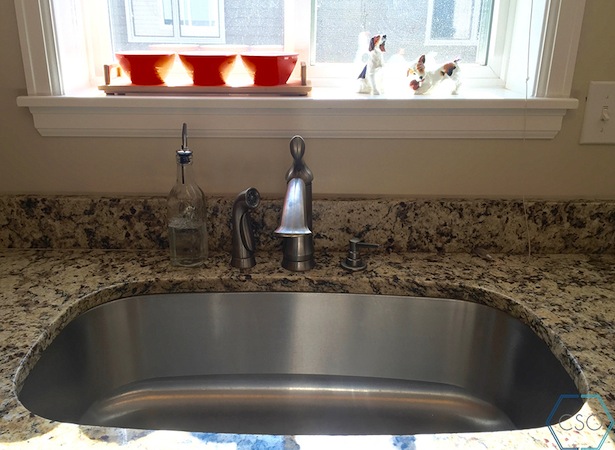
What it Takes to Make a Habit
I�ve always heard that it takes 21 days to form a new habit, meaning if you do the same action repetitively for 21 days straight, it becomes ingrained within you. Whether or not this exact timing is accurate, (I believe there is variation depending on the person and the task), I think it is true that if we consciously do the same task over and over then eventually we don�t have to think about it and our muscle memory kicks in. Sometimes a habit is so second nature we don�t recognize it as a habit. For example, maybe you always put coffee in the coffee pot at night so it�s ready for the next morning, maybe you always put on your right shoe before your left and double knot the laces, or perhaps you always take a last look in the mirror before leaving the house. These are small actions, mostly unnoticeable, but they are habits because you repeatedly do them and therefore they are not decisions but instead have become habitual.
Forming a habit can help us to not take so much time and energy to do the things that benefit our lives. This could include eating better, exercising, and spending time with family. We can also use the benefit of forming habits for becoming and staying organized. If we break a habit that is adding clutter to our lives, and replace it with a habit that is adding order to our lives, the benefit is clear. What if you stopped negative habits that make your home messy or make you feel disorganized? You know what I mean, when you�re tired from the end of a long workday so you don�t bother hanging up your coat or you don�t put your dishes in the dishwasher after you eat. It�s those small things, when you think that you are relieving yourself of a chore by skipping it that make you feel more stress in the long run as they begin to pile up.
Habits to Break vs. Habits to Make
Here are a few common habits that end up adding to disorganization, followed by some quick fixes to change the habit into a positive one that brings order to our lives:
- Instead of kicking off your shoes when you walk in the door where you will trip over them on your way out the next morning, put a shoe rack right by the door or in a closet so you can easily keep the shoes off the floor.
- If you always dump your clothes on the floor when you get undressed at night, install some hooks on the back of your door or on the wall, or add a bench at the end of the bed or a chair in the corner that could hold your clothes for the night. An event better alternative is to get in the habit of hanging up your clothes at the end of the day if you can wear them again or tossing them in the laundry bin or a bag designated for dry cleaning; this will keep them off the floor.
- Does trash tend to pile up in the car cup holder or on the floor? Parking receipts, snack wrappers, and coffee cups can easily accumulate while you�re on the go. Make it a habit to clean out your car by taking the garbage with you every time you get home.
- What about those dishes in the sink? Sometimes cooking dirties a lot of dishes and utensils, not to mention the plates and silverware you use for the actual meal. Instead of letting the sink fill up as you cook and then leaving the plates there overnight, train yourself to clean as you go. When something is in the oven or you are waiting for the water to boil, put soap in the pan to soak during dinner or make sure the dishwasher is unloaded and ready to be filled again. This is one change that can become a habit for the whole family. If everyone rinses off his or her own plate and puts it in the dishwasher after a meal, there will be no overwhelming pile to tackle in the morning.

- Haven�t we all gone to throw something in the garbage or the recycling and found it so full that we have to jam the item in there or use it to push the rest down to squeeze it in? Instead of making one more thing fit, what if our habit were to acknowledge that the garbage is full and it needs to be taken out ASAP, not after we�ve wrestled a few more items in there.
- If something isn�t in my Google calendar, it doesn�t exist in my mind. If you�re like me you need to visually see tasks and appointments to be able to plan and to remember them. Don�t think you�ll remember that meeting or dental cleaning you schedule while you�re on the phone in your car. Get in the habit of stopping right when you hang up that call, no matter where you are, and writing the appointment in your planner or entering it into your calendar on your phone, tablet, computer, etc. That way you will be much less likely to forget those commitments and can plan your schedule accordingly.
- I�m always looking for ways to simplify my morning routine so I can get out of the house efficiently without forgetting anything. If you�re the same and your pattern is to scramble to get ready each morning, and you sometimes feel disheveled when you arrive at your destination, consider making a habit of laying out your outfit the night before. Take a few minutes before you go to bed to put together a look for the next day. Hang it on the back of your door or lay it out on a chair in your bedroom, including shoes and accessories, to streamline getting ready the next morning.

- Instead of having a million thoughts about what you need to do the next day swirling around in your head while you are trying to go to sleep, another good habit to implement is making a list of important things you need to do the next day before you get in bed. That way you will sleep more soundly knowing you already wrote them down.
Organizing as Habit
If you�ve already chosen an above example to implement as a good habit in your daily life, that is a great place to start. Another way to determine what might be a habit worth breaking or a habit worth making is to take a minute to visualize a problem area in your house or your life. It could be something you always trip over, or not having a work surface when you sit down to pay your bills, or not being able to find a pair of matched socks when you go to get dressed in the morning. Whatever the problem is that causes disorder, think backwards to the habit that is causing that to happen. What habit could you replace that habit with that would change the outcome so that area or situation is no longer a problem for you? This will help you determine which habit, broken or made, will have the greatest immediate impact in a positive way on your organization and on your life. Focus on one area in your life that you would like to change at a time. Stand out on the porch in your running shoes after you get up�you might develop the habit of running. Keep a box in your closet for items you want to donate�you might develop the habit of getting rid of things you aren�t using more regularly. Go through the mail right when it comes in the house with you�you might develop the habit of recycling all the junk before it hits your countertops. Once that change becomes a habit, move on to the next problem area that slows your day down. That way these new habits are sustainable and manageable, if you gradually change your habits to help you become and stay organized. This can be an ongoing process, and each time you change a habit or make a new one, your efforts to be organized will be a little bit easier, and your life will be a little bit simpler. Whether it�s 21 days or whatever amount of time you need to take to add each habit to your routine, the benefit of being organized and streamlining your life will make it worth every minute.
Guest Post by Marissa Jacobs of Create Space Organizing {LISTmember}




Leave A Comment